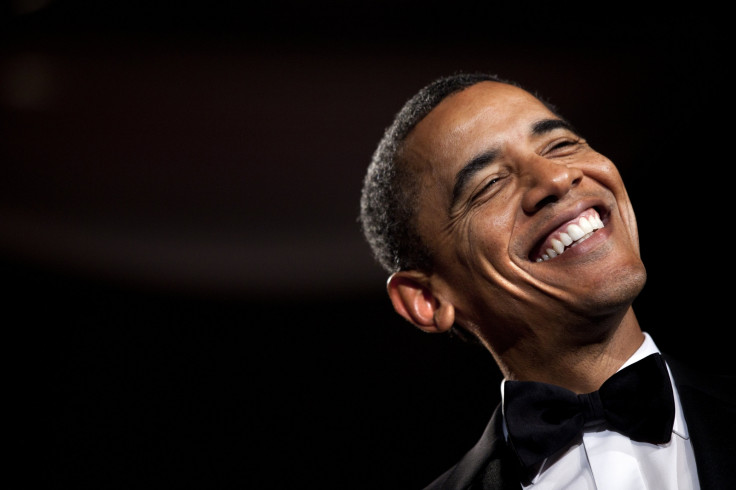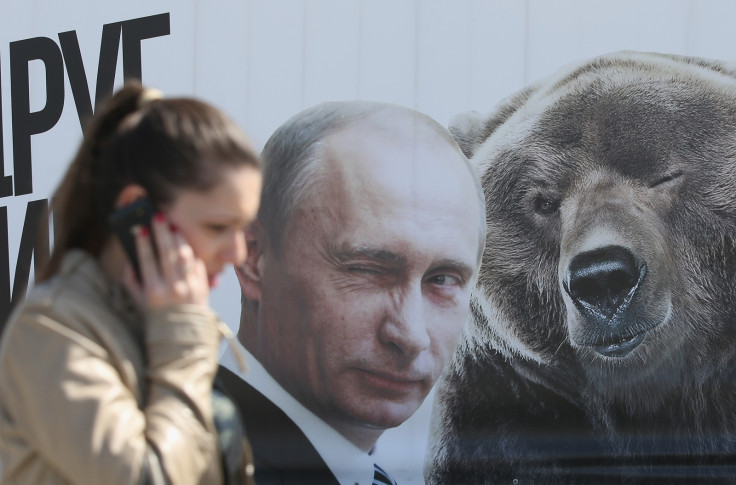Simon Heffer: American forces aim their weapons at Putin's most vulnerable spot - his cronies' wallets
In his final 18 months as the supposed leader of the free world, Barack Obama seems to have belatedly realised two things. Firstly, it is a tradition of people in his position, since the era of FDR at least, to try and shape international affairs. The second is that if an American president wants a place in history, his best way of doing it is not by, say, improving access to healthcare, but by reshaping the world as a whole, preferably for the better.

Last week the US brokered a new nuclear deal with Iran, which has been hailed as the greatest step forward in world peace for decades by those who support it, and as a catastrophe waiting to happen by those who do not.
Emboldened by this rare intervention in world politics, Obama then made another one. It has been reported that senior American officials have drawn up plans to starve Russia of cash unless it stops its aggressions in Eastern Ukraine, as it pledged to do in February when signing the Minsk II agreement. This treaty was signed by Ukrainian President Petro Poroshenko, Vladimir Putin, Angela Merkel and Francois Hollande. Ever since pen was put to paper, Mr Poroshenko has been complaining that Russia is not honouring its side of the deal. Having grandstanded sufficiently, and being powerless in any case to actually do anything, France and Germany seemed to have lost interest. The US, however, seems to think the time has come to flex its muscles.
These actions also coincide with the first anniversary of the shooting down of Malaysian Airways jet MH17 over Ukraine, killing 298 people, an incident many blame on Russian-backed militias. Putin has constantly shrugged off any call for him to claim responsibility for this event.
Now, the US has had enough of Putin's refusals to pull his forces out of Ukraine, and is going to hit him and his fellow kleptocrat gangsters where it will hurt them most: in the wallet. Current sanctions on Russia prevent its companies operating in the US from having credit for more than 30 days, but the US now proposes to reduce this to seven days. This would make it impossible for the majority of Russian companies to do business in the US as it will impair their financial security, in turning bringing Putin to heel.

The West has hardly behaved creditably towards Ukraine, because to an extent this is what happens when its bluff is called. Existing sanctions had no effect on Russia's belligerence in a country that it believes it has a prescriptive right to intervene. Most Western powers, with the exception of the US, have run down their armed forces, and Russia knows that if sanctions have no effect, there is nothing else the West can do to bring it into line.
The US sees the restriction of credit as one credible weapon against this delinquent country. For good measure, it claims to have undertaken an investigation into financial deals made by Putin and his cronies dating back to the mid-1990s, though anything that turns up is unlikely to embarrass someone with a rhinoceros hide like Putin's.
What does this mean for Europe?
But however difficult this might make life for the Russians, the threat of tougher financial sanctions also put further pressure on the European Union to ramp up its own restrictions on Russia. Given Europe's dependence on gas from Russia, countries such as Germany remain nervous about further provoking Putin. This is despite increasingly vocal pleas from Ukrainian politicians for the rest of Europe to come to their aid. Visiting Britain last week the Ukrainian prime minister, Arseniy Yatsenyuk, claimed Russia wanted "to eliminate Ukraine".
The current sanctions are hurting Russia. According to data gathered by Bloomberg, the 21 richest Russians lost, between them, $61bn last year. Many of these people are close associates of Putin, and he relies on their good will to keep Russia functioning at a basic level, at a time where there are not only international sanctions, but also low oil prices. The real penury that Russia is suffering can be gauged by how little it was able to do to help Greece when its prime minister, Alexis Tsipras, went to plead with them for aid shortly before the latest talks with his European and IMF creditors. There was a time – when oil was nearly $150 a barrel – that Putin would have made Greece a wholly owned subsidiary of the Kremlin just to spite the EU. Now, he can hardly afford to keep his own head above water, let alone engage in political bailouts with would-be allies.
The British foreign secretary, Philip Hammond, has called any attempt to exclude Russia from the Society for Worldwide Interbank Financial Telecommunication (Swift) bank clearing system – which would effectively stop it being able to do business anywhere else in the world – "the nuclear option". If US tried this it would hardly matter what Europe opted to do. But there would seem to be one obvious consequence, based on recent form: if Russia is beggared in this way Putin is far more likely to engage in an act of aggression than in an act of surrender. That is fine, provided the US – and its European allies, whether they like it or not – have worked out what their response would be.
Dr Simon Heffer is a British commentator and author who has written columns for The Daily Mail, The Daily Telegraph, The Spectator and The New Statesman. He is the biographer of Enoch Powell, Thomas Carlyle and Ralph Vaughan Williams and recently published High Minds: The Victorians And The Birth Of Modern Britain.
© Copyright IBTimes 2025. All rights reserved.






















